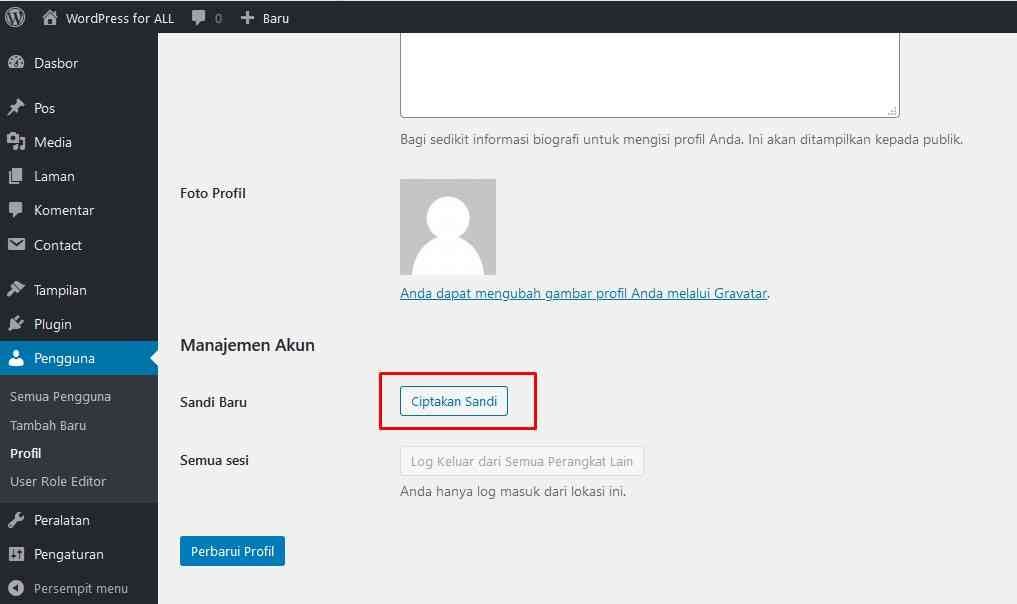Introduction to db_password
In today’s digital age, where data security is paramount, the protection of sensitive information, especially within databases, is of utmost importance. One of the foundational elements in safeguarding data is the use of secure passwords. In the realm of database management, the term “db_password” holds significant relevance.
Importance of Secure Passwords
Before delving into the specifics of , it’s essential to understand the critical role secure passwords play in ensuring data integrity and confidentiality. A strong password serves as the primary line of defense against unauthorized access and potential breaches.
What is db_password?
Definition:
Db_password refers to the password associated with accessing a database or a database management system (DBMS). It serves as the key to unlock access to the stored data, protecting it from unauthorized users.
How db_password Works
In essence, db_password operates similarly to any other password mechanism but with a heightened focus on database security. It involves various encryption techniques and storage methods to ensure that the password remains secure and inaccessible to malicious actors.
Encryption Techniques
are often encrypted using robust encryption algorithms, such as AES (Advanced Encryption Standard) or bcrypt, to prevent unauthorized decryption attempts.
Storage Methods
Unlike conventional passwords stored in plaintext, db_passwords are typically stored in a hashed or encrypted format within the database, adding an extra layer of security.
Common Uses of db_password
Database Security
The primary purpose of is to fortify database security by restricting access to authorized personnel only.
Access Control
facilitate granular access control, allowing database administrators to define and enforce access privileges based on user roles and responsibilities.
Best Practices for Managing db_password
In order to maximize the effectiveness of db_passwords, adhering to best practices is crucial.
Generating Strong Passwords
It is imperative to generate strong, complex passwords that are resistant to brute-force attacks. This includes incorporating a mix of alphanumeric characters, symbols, and varying case letters.
Regular Updates
should be regularly updated to mitigate the risk of unauthorized access due to compromised credentials or password leaks.
Access Control Policies
Implementing stringent access control policies ensures that db_passwords are only accessible to authorized users with legitimate reasons for accessing the database.The consequences of using weak or easily guessable db_passwords can be severe and far-reaching.
Data Breaches :
Weak pose a significant risk of data breaches, potentially leading to the exposure of sensitive information and compromising the integrity of the database.
Unauthorized Access
Malicious actors can exploit weak db_passwords to gain unauthorized access to the database, resulting in data manipulation, theft, or deletion.
Implementing db_password Security Measures
To mitigate the risks associated with , implementing robust security measures is imperative.
Password Managers
Utilizing password management tools can help securely store and manage db_passwords, reducing the risk of human error and password-related vulnerabilities.
Two-Factor Authentication
Implementing two-factor authentication adds an extra layer of security by requiring users to verify their identity using a secondary authentication method, such as a mobile device or biometric data.
Encryption Protocols
Employing encryption protocols for data transmission and storage enhances the security of and prevents unauthorized access to sensitive information.
Case Studies
Examining real-world examples of implementation can provide valuable insights into effective security practices and potential pitfalls to avoid.As technology evolves, so too do the methods and tools available for securing db_passwords.
Advancements in Encryption
Continual advancements in encryption technologies will play a pivotal role in enhancing the security of and mitigating emerging threats.
Biometric Authentication:
The integration of biometric authentication methods, such as fingerprint or facial recognition, may offer a more secure alternative to traditional password-based authentication for accessing databases.
Understanding db_password:
The role of is multifaceted. Primarily, it acts as a means of authentication, verifying the identity of users attempting to access the database. By requiring users to provide the correct password, helps in ensuring that only authorized individuals can perform operations within the database.
The Importance of db_password:
The significance of cannot be overstated in the realm of database security. By requiring users to authenticate themselves with a password, databases can effectively control access to sensitive information, reducing the risk of unauthorized access and data breaches.
Common Myths and Misconceptions:
Despite its importance, there are several myths and misconceptions surrounding . One common myth is that longer passwords are always more secure than shorter ones. While length is indeed a factor in password security, other factors such as complexity and uniqueness also play crucial roles.
Best Practices for Setting db_password:
To ensure optimal security, it is essential to adhere to best practices when setting . Some key tips include:Use Complex Passwords: Incorporate a mix of uppercase and lowercase letters, numbers, and special characters to create strong, complex passwords.
Avoid Common Words: Steer clear of using easily guessable words or phrases, such as dictionary words or common phrases.
Regularly Update Passwords: Implement a policy requiring users to update their passwords regularly to mitigate the risk of password-based attacks.
Implement Multi-Factor Authentication (MFA): Supplement password-based authentication with additional layers of security, such as MFA, to further bolster security.

Ensuring Strong Authentication:
In the context of databases, strong authentication mechanisms, such as db_password, play a crucial role in preventing unauthorized access and safeguarding sensitive information.
Implementing Encryption Techniques:
Encryption is a fundamental security measure used to protect sensitive data from unauthorized access or interception. By encrypting passwords stored in a database, organizations can ensure that even if the database is compromised, the passwords remain secure and unintelligible to unauthorized parties.
Monitoring and Auditing:
Monitoring and auditing are essential components of database security, allowing organizations to track user activity, detect suspicious behavior, and respond promptly to potential security threats. By implementing robust monitoring and auditing mechanisms, organizations can maintain vigilance over database access and ensure compliance with security policies and regulations.
Securing Remote Access:
With the increasing prevalence of remote work, securing remote access to databases has become a critical concern for organizations. Implementing measures such as VPNs, firewalls, and secure authentication protocols can help mitigate the risks associated with remote access and ensure that sensitive data remains protected.
What Makes a Strong db_password:
Several factors contribute to the strength of a , including.Length: Longer passwords are generally more secure than shorter ones, as they offer a larger search space for potential attackers to navigate.
Complexity: A strong should incorporate a mix of uppercase and lowercase letters, numbers, and special characters to increase its complexity and resilience against brute-force attacks.
Uniqueness: Each user should have a unique to prevent the compromise of one password from affecting the security of other accounts.
Protecting Against Common Threats:
Common threats to database security include:
SQL Injection: Attackers exploit vulnerabilities in web applications to execute malicious SQL queries, potentially gaining unauthorized access to the underlying database.
Brute-Force Attacks:
Attackers attempt to guess passwords by systematically trying different combinations until the correct one is found.Insider Threats: Malicious insiders with access to privileged accounts may abuse their privileges to steal sensitive data or sabotage the database.
Enhancing Security Measures:
As cyber threats continue to evolve, organizations must continuously adapt and enhance their security measures to stay ahead of potential threats. This may involve implementing advanced security technologies, conducting regular security assessments, and staying informed about emerging threats and vulnerabilities.
The Future of db_password Security:
The future of db_password security is likely to be shaped by advancements in authentication technologies, such as biometrics and behavioral analytics. Additionally, the widespread adoption of cloud-based databases may present new challenges and opportunities for securing sensitive information.
Expert Insights:
Industry professionals emphasize the importance of adopting a holistic approach to database security, encompassing not only strong authentication mechanisms like db_password but also encryption, access controls, and regular security assessments. By implementing layered security measures and staying vigilant against emerging threats, organizations can mitigate the risk of data breaches and safeguard their sensitive information.
FAQs
What are some tips for creating a strong db_password?
Incorporate a mix of alphanumeric characters, symbols, and varying case letters.Consider using passphrase-based passwords for added complexity.
How often should db_passwords be updated?
Db_passwords should be updated regularly, ideally every 90 days, to mitigate the risk of unauthorized access due to compromised credentials.
Is storing db_passwords in plaintext secure?
No, storing in plaintext is not secure and leaves them vulnerable to unauthorized access and exploitation. It is recommended to store db_passwords in a hashed or encrypted format.
What are the consequences of a data breach due to weak db_passwords?
A data breach resulting from weak db_passwords can lead to the exposure of sensitive information, financial losses, damage to reputation, and legal repercussions.
Can db_password security be automated?
Yes, db_password security measures, such as password rotation, access control policies, and encryption protocols, can be automated using specialized tools and software solutions.
Conclusion
In conclusion, db_passwords are a critical component of database security, serving as the primary means of access control and data protection. By understanding the importance of secure passwords, implementing best practices for managing , and staying abreast of emerging security trends, organizations can safeguard their data assets and mitigate the risks associated with unauthorized access and data breaches.









